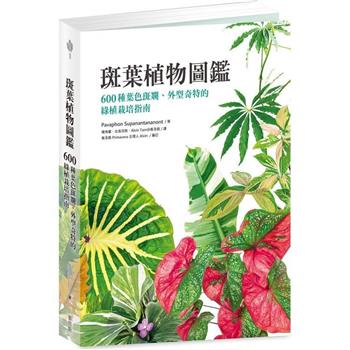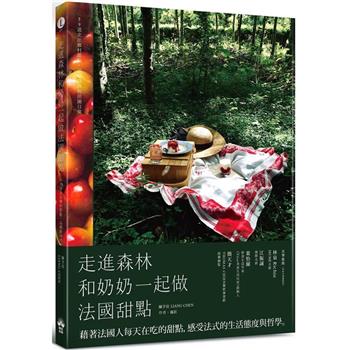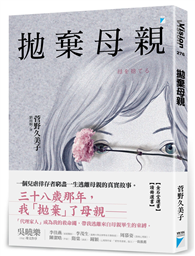Plants
植物
Root
Roots are the part of the plant that is in the ground. The roots
of the plant hold the plant in the ground. On each root are tiny root
hairs. These tiny root hairs grow into the soil. They take in water
and minerals. The plant uses water and minerals to make food.
Without water and minerals, the plant cannot grow.
Stems
Now look at a plant’s stems. These stems are like tiny pipes. Water and minerals
can travel through the stem. The stem takes water and minerals to the leaves, where
the plant’s food is made.
Stems are many different sizes. The big tree trunk is a stem. The stem of a
cabbage plant is so short that you may not see it. Vines are a kind of stem. The tiny
tubes in the stem of a celery plant are easy to see.
Leaves
The leaves of green plants have tiny
openings in them. To see these openings,
you will need the help of a microscope.
A microscope makes things look much
bigger than they really are.
The tiny openings are important to help the plant grow. Carbon dioxide, a gas
from the air, enters the leaf by the openings. Carbon dioxide is given off by people
and animals when they breathe.
When plants use carbon dioxide, they give off a gas called oxygen. People and
animals need oxygen to live. Some of the water in the plant is given off through the
leaves. Carbon dioxide goes into the leaves of the plant through tiny openings like
those in this picture.
Food storage parts
You have learned that all green plants make food.
You know that the plants use part of the food they make.
This food is used to grow new leaves and roots.
What happens to the rest of the food? God made
green plants in a special way. All extra food is stored
somewhere in the plant. Some plants such as lettuce
store their extra food in the leaves. Many plants such as
beets and carrots store food in their roots. The celery plant stores food in its stem.
Corn, beans, and peas store food in their seeds. Still other plants store food in their
fruits. Could you say, then, that you had roots, stems, and leaves for dinner?
stem
[stɛm] j
莖;(樹)幹
相關詞
Some wild vines ran up the stems of the corn.
一些野生的藤蔓纏繞著玉米莖往上長。
leaf [lif] n. 葉子;
branch [bræntʃ] n. 樹枝,分支;root [rut] n. 根
trunk
[trʌŋk] j
樹幹
相關詞
The trunk of this tree is thicker than
three meters.
這棵樹的樹幹有超過三公尺粗。
bole [bol] n. 樹幹;bud [bʌd] n. 芽
cabbage
[ˋkæbɪdʒ] j
高麗菜
相關詞
My brother likes to eat cabbage.
弟弟喜歡吃高麗菜。
Chinese cabbage n. 大白菜;
spinach [ˋspɪnɪtʃ] n. 菠菜;
celery [ˋsɛlərɪ] n. 芹菜;
leek [lik] n. 韭菜
picture
[ˋpɪktʃɚ] j
畫;畫像;
圖片;照片
相關詞
This picture vividly portrays the condition
of life in China at that time.
這幅圖片生動地呈現了那個時期中國的生活狀況
portrait [ˋportret] n. 肖像畫;
painting [ˋpentɪŋ] n. 繪畫;
portray [porˋtre] v. 描繪
Are They Insects?
牠們是昆蟲嗎?
Are They Insects?
Read each passage. After each passage you will answer a question about the
main idea of the passage. Remember, the main idea is the main point in a story.
I. Mayflies are insects. They begin life underwater. As they grow older, mayflies
leave the water and grow wings. When their wings are strong, they fly with
thousands of other mayflies near the water. You can often see them by ponds.
They look like a dark cloud hanging over the water.
1. The story mainly tells .
A. why mayflies have no wings
B. what looks like a cloud
C. about the life of mayflies
D. how mayflies grow on land
II. Some butterflies lay their eggs on just one kind of plant. By tasting the plant, they
know which one is right. Sometimes butterflies taste the wrong plant, so they fly
to another plant and taste again. When they find the right plant, they lay their eggs
there. Soon the eggs hatch. The hungry babies eat the plant their mother chose!
2. The story mainly tells .
A. when baby butterflies come out of eggs
B. how butterflies choose where to lay eggs
C. what flies from one plant to another
D. how butterflies always taste the right plant
III. Centipedes are not insects, but they look like insects. They are long animals with
short legs. Centipede means “hundred feet,” but centipedes have 350 legs!
Millipedes also have many legs. Millipede means “thousand feet,” but they have
about 700 legs!
3. The story mainly tells .
A. how many legs centipedes and millipedes have
B. what kind of animal a centipede is
C. that centipedes have one hundred legs
D that millipedes have one thousand legs
IV. A fly has six feet. Each foot has a plump little pad on the bottom. The pads flatten
out when the fly walks on a smooth surface. They give off a sticky liquid that
holds the fly to the wall or the ceiling. The liquid acts like glue so that the fly
doesn’t fall.
4. The story mainly tells .
A. how many legs a fly has
B. about the fly’s special feet
C. how flies make glue
D. about different types of flies
V. Many people don’t like bugs. Some bugs bite or sting people. Other bugs eat
people’s plants and fruits. People poison bugs to get rid of them. Now scientists
are finding new ways to kill bugs with germs. The germs make the bugs sick, and
then they die. Scientists also use bugs to fight the other bugs. The ladybug is an
example. It eats bugs that hurt fruit.
5. The story mainly tells .
A. poison is not the only way to get rid of bugs
B. people need to stay away from ladybugs
C. most bugs like to eat fruit trees
D. the germs make the bugs stronger
insect
['insekt] j
昆蟲
相關詞
Are mayflies insect or not?
蜉蝣是不是昆蟲?
insecticide [ɪnˋsɛktə͵saɪd] n. 殺蟲劑;
worm [wɝm] n. 蟲;pest [pɛst] n. 害蟲;
mayfly [ˋme͵flaɪ] n. 蜉蝣
pond
[pɑnd] j
池塘
相關詞
Children like to play at the pond.
孩子們喜歡在池塘邊玩。
pool [pul] n. 水塘;penstock [ˋpɛn͵stɑk] n. 水渠;
drain [dren] n. 水溝
hang
[hæŋ] l
把…掛起;懸掛展出
相關詞
My mother hung the clothes on the rope.
媽媽把衣服掛在繩子上。
hanging [ˋhæŋɪŋ] n. 絞死,絞刑;
suspend [səˋspɛnd] v. 使暫停,使停留;
swing [swɪŋ] v. 擺動
butterfly
[ˋbʌtɚ͵flaɪ] j
蝴蝶
相關詞
I saw a butterfly resting on the leaf.
我看見一隻蝴蝶在樹葉上休息。
bee [bi] n. 蜜蜂;moth [mɔθ] n. 飛蛾;
ladybug [ˋledɪ͵bʌg] n. 瓢蟲
hungry
[ˋhʌŋgrɪ] k
饑餓的;
顯出饑餓樣子的
相關詞
I felt very hungry today so I ate a lot.
我今天很餓,所以吃了很多。
hunger [ˋhʌŋgɚ] v. 挨餓;
starving [ˋstɑrvɪŋ] adj. 饑餓的;
thirsty [ˋθɝstɪ] adj. 口渴的
centipede
[ˋsɛntə͵pid] j
蜈蚣
相關詞
Centipedes can be used as medicinal material.
蜈蚣能當藥材用。
millipede [ˋmɪlə͵pid] n. 多足類;
mantis [ˋmæntɪs] n. 螳螂;
cockroach [ˋkɑk͵rotʃ] n. 蟑螂
plump
[plʌmp] k
豐滿的;胖嘟嘟的
相關詞
The baby has rosy plump cheeks.
這嬰兒的面頰紅紅胖嘟嘟的。
plumpness [ˋplʌmpnɪs] n. 豐滿;
chubby [ˋtʃʌbɪ] adj. 圓胖的;
pudgy [ˋpʌdʒɪ] adj. 矮胖的
flatten
[ˋflætn] l
使平坦;弄平
相關詞
My mother flattened the clothes with an iron.
媽媽用熨斗把衣服燙平。
flat [flæt] adj. 平坦的;
flatness [ˋflætnɪs] n. 平坦,單調;
widen [ˋwaɪdn] v. 使寬廣
surface
[ˋsɝfɪs] j
表面;表相
相關詞
The surface of the lake is quite still
because there was no wind.
由於沒有風,湖面很平靜。
exterior [ɪkˋstɪrɪɚ] n. 外部;
face [fes] n. 表面,面子;
outside [ˋaʊtˋsaɪd] n. 外部,外觀
Sounds You Hear
你聽到的聲音
Sounds You Hear
Wind can whistle and rustle the leaves.
Water can gurgle and splash.
A bird can sing, way up in the trees.
A cricket can chirp in the grass.
The wail of siren,
The clink of a spoon,
The jingle or ring of a bell,
Can you tell what’s happening outside of your room.
They are sounds you know so well.
whistle
[ˋhwɪsL] l
鳴汽笛;吹口哨
相關詞
When you hear the referee whistle,
just rush towards the ball.
你一聽到裁判吹哨,就往球的方向衝過去。
alarm [əˋlɑrm] v. 警告,使驚恐;
bugle [ˋbjugL] v. 吹號,吹喇叭;
horn [hɔrn] v. 鳴笛
rustle
[ˋrʌsL] l
使沙沙作響
相關詞
During the night, I heard the cold wind
rustling the leaves.
我聽見寒風在夜裡吹得樹葉沙沙作響。
whisper [ˋhwɪspɚ] v. 耳語、低語,颯颯地響;
swishy [swɪʃɪ] adj. 嗖地作響的;
whoosh [hwuʃ] n. 嗖的一聲,嘶嘶聲
gurgle
[ˋgɝgL] l
(水等) 汩汩地流
相關詞
The water gurgled out of the pipe.
水從管子裡汩汩地流了出來。
bubble [bʌbL] v. 冒泡,發出氣泡聲;
flow [flo] v. 流動;torrent [ˋtɔrənt] n. 激流
splash
[splæʃ] l
濺;潑
相關詞
I didn’t mean to splash the page with ink.
我不是故意把墨水濺到頁面上。
ripple [ˋrɪp!] n. 漣漪;surf [sɝf] n. 拍岸浪花;
spray [spre] n. 浪花,水花
cricket
[ˋkrɪkɪt] j
蟋蟀
相關詞
There is a cricket hopping in the grass.
草叢裡有一隻蟋蟀在跳。
grasshopper [ˋgræs͵hɑpɚ] n. 蚱蜢;
locust [ˋlokəst] n. 蝗蟲;
beetle[ˋbitL] n. 甲蟲
chirp
[tʃɝp] l
唧唧叫
相關詞
I heard birds chirping among the trees.
我聽到鳥兒在樹叢裡鳴叫。
twitter [ˋtwɪtɚ] v. 吱吱叫;啁啾;
bray [bre] v. 驢叫;mew [mju] v. 貓喵喵叫;
tweet [twit] v. 吱吱地叫;啁啾鳴叫
wail
[wel] j
慟哭聲;呼嘯聲
相關詞
I heard the wail from this room.
我聽到從這個房間裡發出了一陣哀號聲。
moan [mon] n. 呻吟聲,嗚咽聲;
scream [skrim] n. 尖叫聲;zing [zɪŋ] v. 尖嘯聲
siren
[ˋsaɪrən] j
汽笛;報警器
相關詞
The siren suddenly went off at midnight.
警笛突然在半夜響了起來。
burglar alarm [ˋbɝglɚ] [əˋlɑrm] n. 防盜警報器;
car alarm [kɑr] [əˋlɑrm] n. 汽車防盜器;
hooter [ˋhutɚ] n. 汽笛;警笛
clink
[klɪŋk]j
叮噹聲
相關詞
I got mad at the clink of keys.
鑰匙碰撞時的叮噹聲,讓我感到很煩。
click [klɪk] n. 滴答聲;tinkle [ˋtɪŋkL] n. 叮噹聲;
jingle [ˋdʒɪŋgL] n. 叮噹聲;ring [rɪŋ] v. 鳴,響
spoon
[spun] j
湯匙;勺子相關詞
Use a spoon to stir up the soup.
用湯匙攪拌湯。
bowl [bol] n. 碗;
dish [dɪʃ] n. 盤,碟;
pot [pɑt] n. 鍋
| FindBook |
有 5 項符合
學好英文單字先讀美國小學課本的圖書 |
 |
學好英文單字先讀美國小學課本(附MP3 CD)【金石堂、博客來熱銷】 出版日期:2018-10-18 |
| 圖書選購 |
| 型式 | 價格 | 供應商 | 所屬目錄 | $ 284 |
Language Learning |
$ 306 |
語言 |
$ 324 |
英文 |
$ 324 |
英文 |
$ 324 |
英文 |
|---|
| 圖書館借閱 |
| 國家圖書館 | 全國圖書書目資訊網 | 國立公共資訊圖書館 | 電子書服務平台 | MetaCat 跨館整合查詢 |
| 臺北市立圖書館 | 新北市立圖書館 | 基隆市公共圖書館 | 桃園市立圖書館 | 新竹縣公共圖書館 |
| 苗栗縣立圖書館 | 臺中市立圖書館 | 彰化縣公共圖書館 | 南投縣文化局 | 雲林縣公共圖書館 |
| 嘉義縣圖書館 | 臺南市立圖書館 | 高雄市立圖書館 | 屏東縣公共圖書館 | 宜蘭縣公共圖書館 |
| 花蓮縣文化局 | 臺東縣文化處 |
|
|
圖書介紹 - 資料來源:TAAZE 讀冊生活 評分:
圖書名稱:學好英文單字先讀美國小學課本
本書特色
★ 內容原汁原味,淺顯易懂
本書收錄的所有內容(包括習題)均摘自美國小學課本,我們意欲讓讀者看到原汁原味的英語。
★所選文章涉及面廣,豐富多采
文章內容極廣,包括自然科學、社會風土人情、語文、數學等,其中自然科學篇包括天文、地理、生物等知識體系,讓你在學習英語的同時,拓展知識、瞭解美國文化風情,增強英語學習的趣味性。
★ 瞬間聯想單字記憶網
針對核心單字我們列出其相關辭彙,讓你在學單字的同時,舉一反三,記住其他相關詞,提高你的單字記憶效率。
★ 精選日常生活中常用的單字,列舉實用例句
★ 每個核心單詞搭配插畫,幫助形象記憶
本書對每個核心單字配以彩色插圖,除了緩解讀者的視覺和記憶疲勞外,還幫助其形象記憶,提高學習效率。
作者簡介:
審訂者簡介
Matthew Chin 晉安佑
● 東吳大學英國語文學系畢
● 林語堂故居英語導覽員訓練講師
● 交通部運輸研究所APEC小組
● 東吳大學企管系APEC事務顧問
● 2010年創業,現為馬修書房英語補習班班主任
TOP
章節試閱
Plants
植物
Root
Roots are the part of the plant that is in the ground. The roots
of the plant hold the plant in the ground. On each root are tiny root
hairs. These tiny root hairs grow into the soil. They take in water
and minerals. The plant uses water and minerals to make food.
Without water and minerals, the plant cannot grow.
Stems
Now look at a plant’s stems. These stems are like tiny pipes. Water and minerals
can travel through the stem. The stem takes water and minerals to the...
植物
Root
Roots are the part of the plant that is in the ground. The roots
of the plant hold the plant in the ground. On each root are tiny root
hairs. These tiny root hairs grow into the soil. They take in water
and minerals. The plant uses water and minerals to make food.
Without water and minerals, the plant cannot grow.
Stems
Now look at a plant’s stems. These stems are like tiny pipes. Water and minerals
can travel through the stem. The stem takes water and minerals to the...
»看全部
TOP
推薦序
國立台灣科技大學應用外語系 黃玟君 博士 熱情推薦
知己知彼,百戰百勝
在台灣,「英語學習」是全民運動,不過很可惜的是,大部分從事此「運動」的學習者雖試過各式各樣的學習方式,卻很少有人會利用西方世界的「教科書」來當作自己學習英文的讀物。有趣的是,很多研究都證實,最佳的外語教材不是刻意根據既定的文法規則或單字所寫出的句子,也不是與現實生活脫節、艱深難懂的文章,而是真正在西方世界被用來教導當地學生(也就是native speakers,「母語者」)的教材。根據研究,這些真實的教材不僅可以讓人學習到更真實、自然的英文,...
知己知彼,百戰百勝
在台灣,「英語學習」是全民運動,不過很可惜的是,大部分從事此「運動」的學習者雖試過各式各樣的學習方式,卻很少有人會利用西方世界的「教科書」來當作自己學習英文的讀物。有趣的是,很多研究都證實,最佳的外語教材不是刻意根據既定的文法規則或單字所寫出的句子,也不是與現實生活脫節、艱深難懂的文章,而是真正在西方世界被用來教導當地學生(也就是native speakers,「母語者」)的教材。根據研究,這些真實的教材不僅可以讓人學習到更真實、自然的英文,...
»看全部
TOP
目錄
第一篇 科學篇
※ God-made Objects and Man-made Objects 上帝創造的物體 & 人製造的物品
※ Plants 植物
※ Are They Insects? 牠們是昆蟲嗎?
※ You Hear Sounds 你聽到的聲音
※ Different Animals 不同的動物
※ Mammals 哺乳動物
※ How Are Animals Different? 動物有何不同?
※ How Do Animals Grow and Change? 動物是怎樣成長和變化的?
※ Keeping up with the Dinosaurs 恐龍追追追
※ Black Widow Spider 毒蜘蛛黑寡婦
※ Starfish 海星
※ Personal Safety 個人安全
※ Your Body Digests Foo...
※ God-made Objects and Man-made Objects 上帝創造的物體 & 人製造的物品
※ Plants 植物
※ Are They Insects? 牠們是昆蟲嗎?
※ You Hear Sounds 你聽到的聲音
※ Different Animals 不同的動物
※ Mammals 哺乳動物
※ How Are Animals Different? 動物有何不同?
※ How Do Animals Grow and Change? 動物是怎樣成長和變化的?
※ Keeping up with the Dinosaurs 恐龍追追追
※ Black Widow Spider 毒蜘蛛黑寡婦
※ Starfish 海星
※ Personal Safety 個人安全
※ Your Body Digests Foo...
»看全部
TOP
商品資料
- 作者: 源樺出版編輯部
- 出版社: 華翔文化 出版日期:2018-10-18 ISBN/ISSN:9789865962753
- 語言:繁體中文 裝訂方式:平裝 頁數:304頁
- 商品尺寸:長:230mm \ 寬:170mm
- 類別: 中文書> 語言> 英文
|









